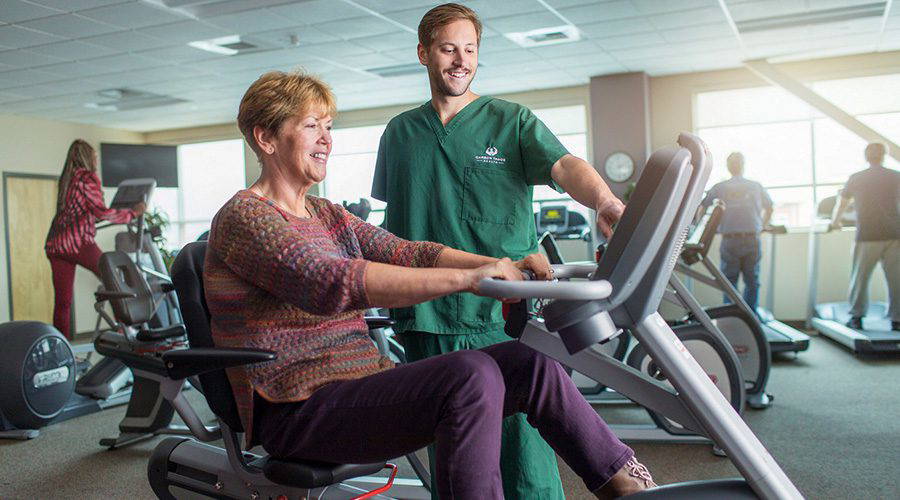How Cardiac Rehabilitation Can Help Heal Your Heart
CDC – Centre for Disease Control
If you have a heart attack or other heart problem, cardiac rehabilitation is an important part of your recovery. Cardiac rehabilitation can help prevent another, perhaps more serious, heart attack and can help you build heart-healthy habits. Learn more about who needs cardiac rehabilitation and how it can help your recovery.
About 800,000 people in the United States have a heart attack every year. About 1 in 4 of those people already had a heart attack.1 Cardiac rehabilitation not only can help a person recover from a heart problem but can also prevent future heart problems.
If you have a heart attack or other heart problem, cardiac rehabilitation can help your recovery.
What is cardiac rehabilitation?
Cardiac rehabilitation is an important program for anyone recovering from a heart attack, heart failure, or other heart problem that required surgery or medical care. Cardiac rehabilitation is a supervised program that includes:
- Physical activity.
- Education about healthy living, including how to eat healthy, take medicine as prescribed, and quit smoking.
- Counseling to find ways to relieve stress and improve mental health.
A team of people may help you through cardiac rehabilitation, including your health care team, exercise and nutrition specialists, physical therapists, and counselors.
Who needs cardiac rehabilitation?
Anyone who has had a heart problem, such as a heart attack, heart failure, or heart surgery, can benefit from cardiac rehabilitation. Studies have found that cardiac rehabilitation helps men and women, people of all ages, and people with mild, moderate, and severe heart problems.2
However, some people are less likely to start or finish a cardiac rehabilitation program, including:
- Studies show that women, especially minority women, are less likely than men to start or complete cardiac rehabilitation.3,4 This may be because doctors may be less likely to suggest cardiac rehabilitation to women.
- Older adults. Older adults are also less likely to join a cardiac rehabilitation program following a heart problem.5 They may think they are unable to do the physical activity because of their age, or they may have other conditions that can make exercising harder, such as arthritis.
The need to address other physical conditions makes cardiac rehabilitation especially useful for older adults, since it can improve strength and mobility to make daily tasks easier.2,5
One of the benefits of cardiac rehabilitation is building healthier habits, such as finding a physical activity that you enjoy, to help you stay heart-healthy for life.
How does cardiac rehabilitation help?
Cardiac rehabilitation can have many health benefits in both the short and long term, including:
- Strengthening your heart and body after a heart attack.
- Relieving symptoms of heart problems, such as chest pain.
- Building healthier habits such as getting more physical activity, quitting smoking, and eating a heart-healthy diet. A nutritionist or dietitian may work with you to help you limit foods with unhealthy fats and eat more fruits and vegetables that are high in vitamins, minerals, and fiber.
- Reducing stress.
- Improving your mood. People are more likely to feel depressed after a heart attack. Cardiac rehabilitation can help prevent or lessen depression.6
- Increasing your energy and strength to make daily activities like carrying groceries and climbing stairs easier.
- Making you more likely to take your prescribed medicines that help lower your risk for future heart problems.6
- Preventing future illness and death from heart disease. Studies have found that cardiac rehabilitation decreases the chance that you will die in the 5 years following a heart attack or bypass surgery by about 35%.6
Where can I get cardiac rehabilitation?
Some programs are done in a hospital or rehabilitation centre, and other programs can be done in your home. Cardiac rehabilitation may start while you are still in the hospital or right after you leave the hospital.
Cardiac rehabilitation programs usually last about 3 months but can range anywhere from 2 to 8 months.
Content source: National Centre for Chronic Disease Prevention and Health Promotion , Division for Heart Disease and Stroke Prevention

